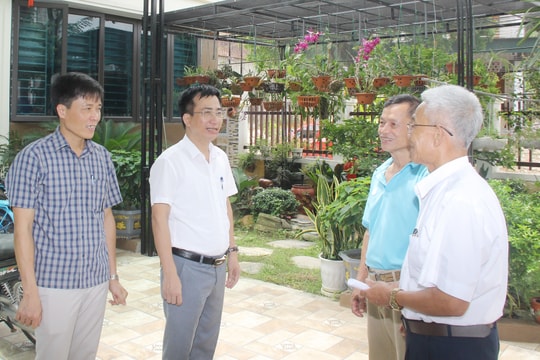Nghe An: Removing 'bottlenecks' to develop party members
The work of building and developing Party organizations and Party members is a key task in Party building. However, this work is facing difficulties, so the Party committees at all levels in Nghe An are determined that the more difficult it is, the more effective solutions must be found.
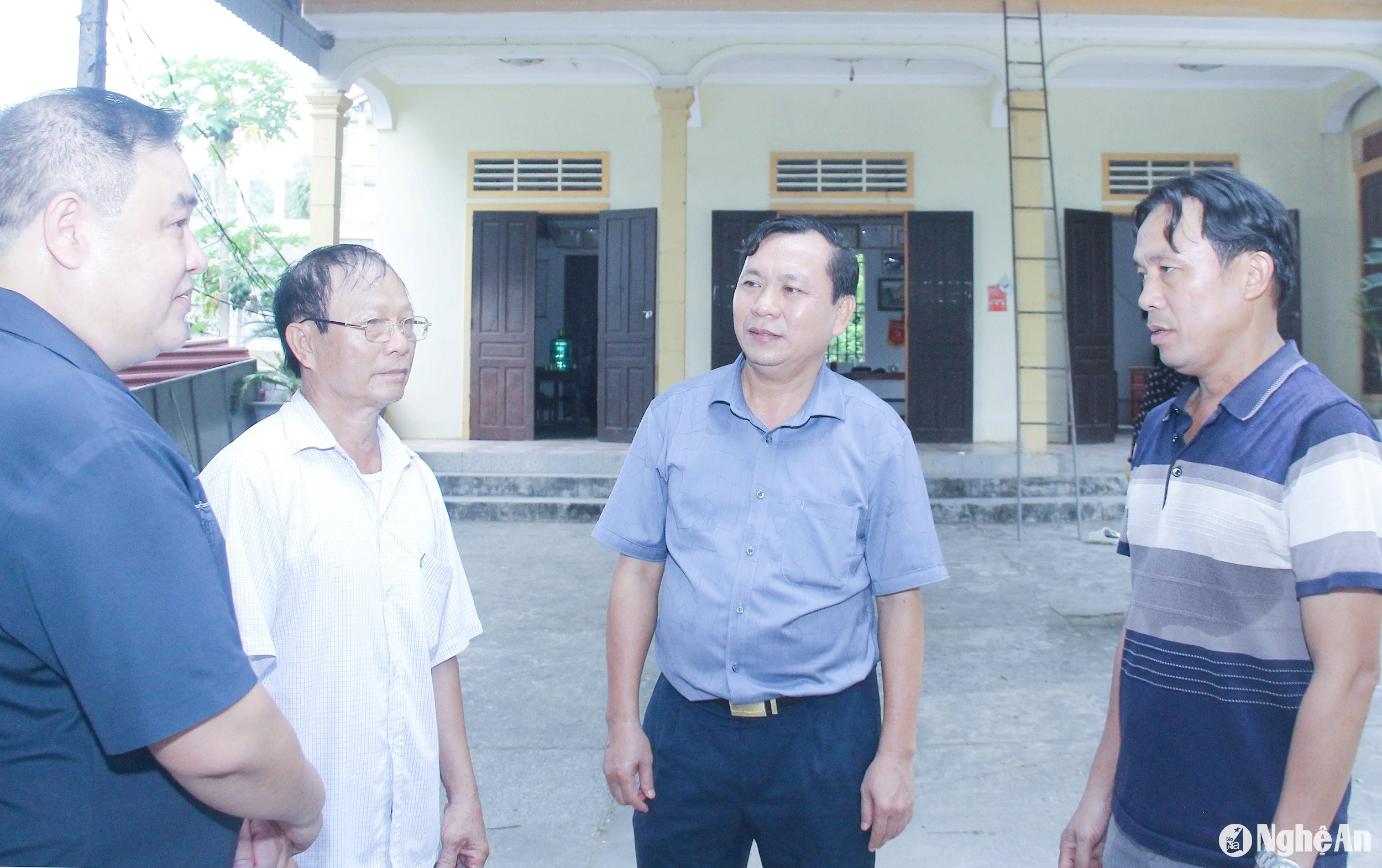
"Breakthrough" in ideology
In developing party members, for a long time, besides the lack of resources, the important factor is the fear of joining the Party among the masses. This is the "bottleneck" that Party organizations have identified as needing to find solutions to "breakthrough" in terms of ideology.
Ms. Bui Thi Ben came from another locality to marry into Duc Xuan village (Tien Thuy commune, Quynh Luu district). With the encouragement and motivation of the Women's Union and the Village Party Committee, Ms. Ben gradually actively participated in the movements in the village and became more mature. From then on, she was admitted to the Party and elected as the Deputy Head of the Village Women's Union. Ms. Bui Thi Ben confided: "I feel very happy and grateful to those who have guided me to grow up in all aspects."
To develop a party member, according to comrade Nguyen Van Thanh - Secretary of the Duc Xuan village Party Cell, Tien Thuy commune, is a "diligent" task. Every year, the Party Cell organizes specialized activities on developing party members. Through that, it actively selects outstanding masses and assigns party members to monitor and train them. If the masses do not "understand" the ideology of striving to join the Party, the Party Cell and other organizations will find solutions, mobilize the participation of the Youth Union, Association and Party Cell to directly meet, propagate and encourage outstanding masses.
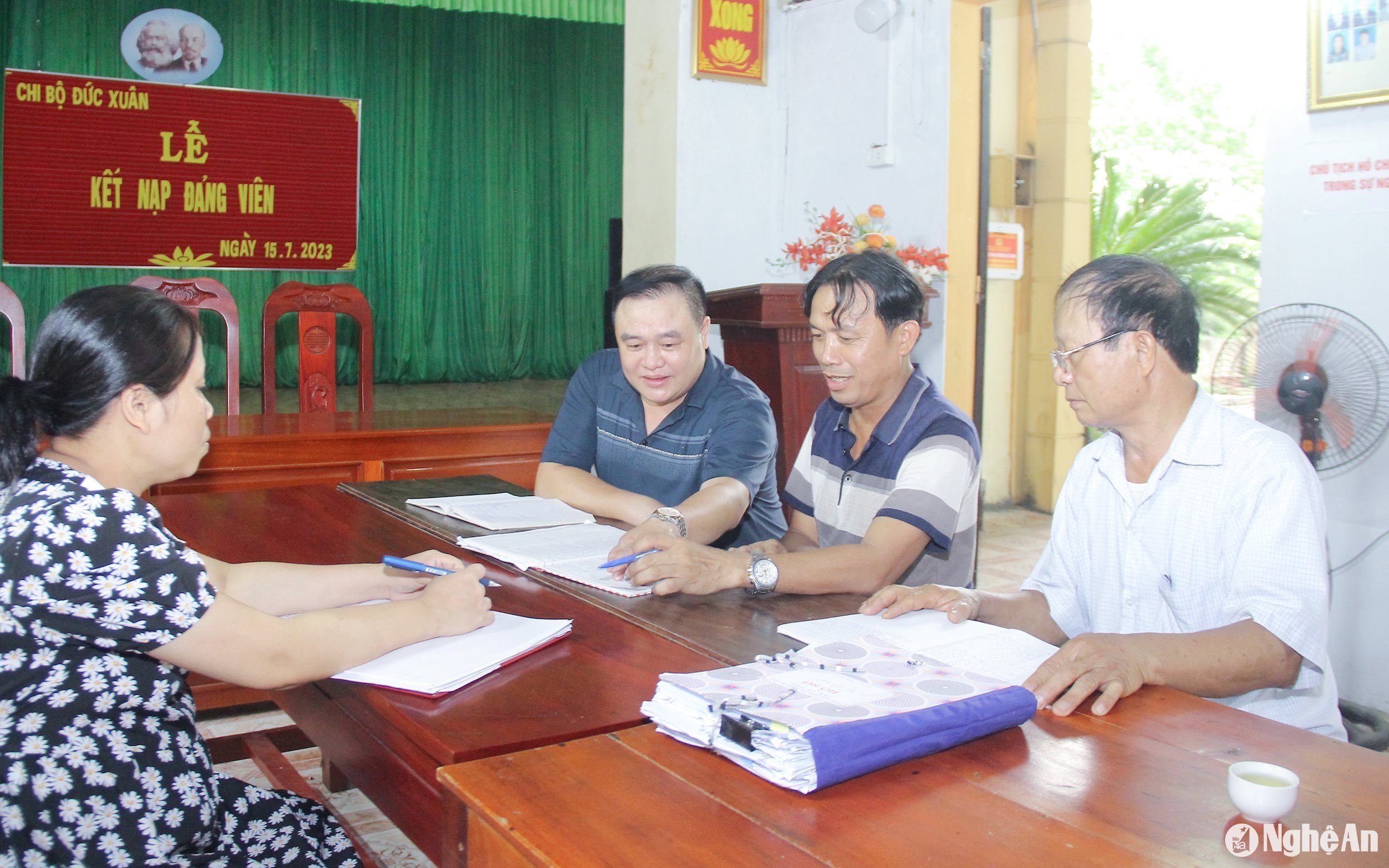
With that approach, each year, Duc Xuan village Party Cell admits 2-3 new party members. Especially through developing party members associated with perfecting the executive committees of branches and youth unions. All branches and youth unions have 1-2 people admitted to the Party. Developing party members well makes the Party Cell "younger" with 8/14 party members under 40 years old; contributing to improving leadership capacity when young people are healthy, enthusiastic, and directly work and produce.
In the trend of lacking resources and the masses not being interested in joining the party, the work of developing the party was discussed in detail by the Quang Long hamlet Party Cell (Quang Thanh commune, Yen Thanh district) during the party cell meetings. Party cell secretary Dang Quoc Viet confided: In the current market economy mechanism, everyone is worried about making a living, the way to convince each comrade in the party cell is to take the reality of having many cadres and civil servants living in the area or having many local party members participating in village and hamlet movements; take the specific work and activities of each individual in the party cell, each party member in the village and hamlet to persuade the masses to strive to join the party.
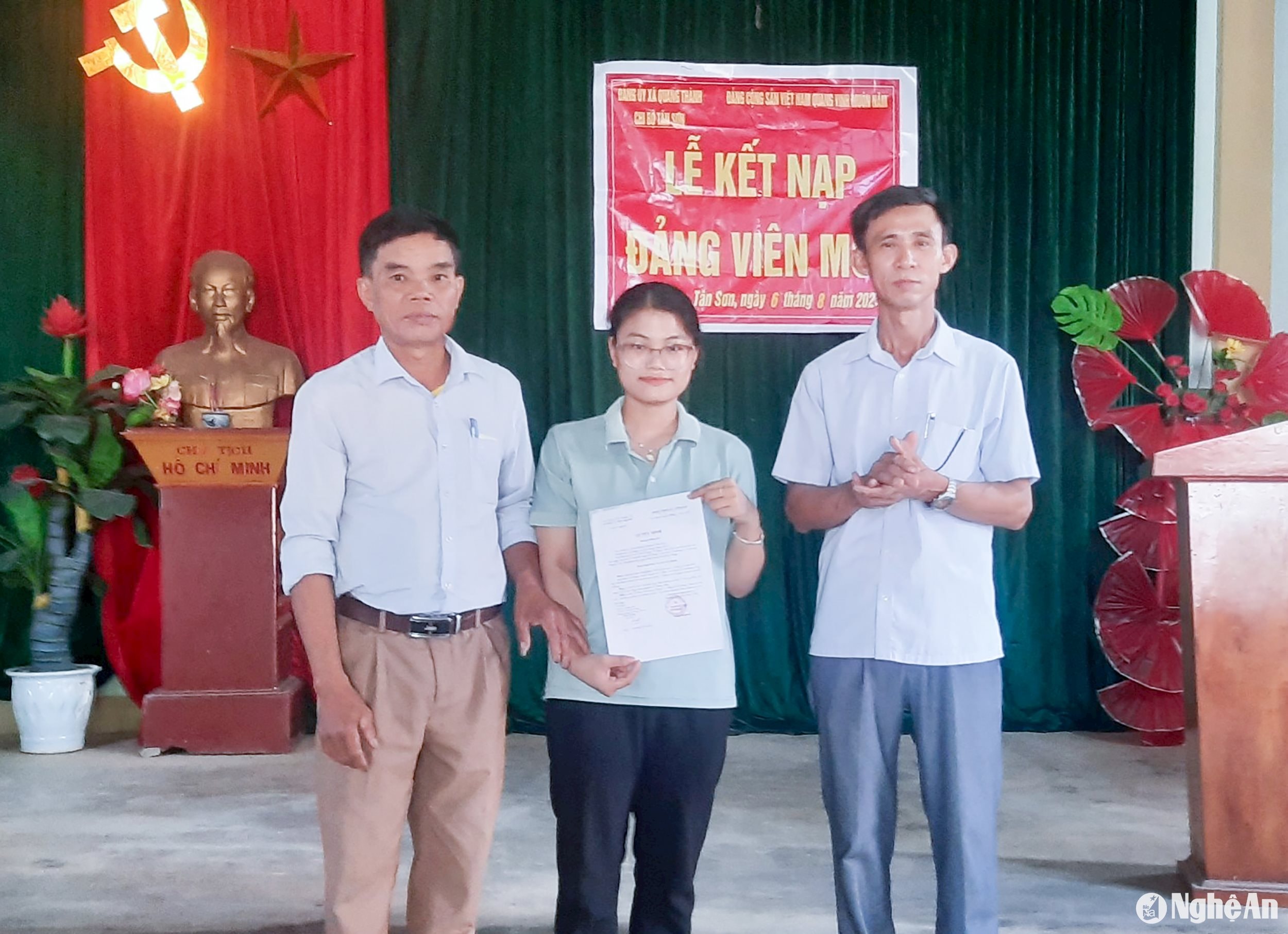
Thanks to that, although the local working-age population is very small, about 300 people, every year since 2020, the Party cell has continuously developed 1-2 Party members. The total current number of Party members of the Party cell is 34, accounting for about 12% of the total current local workforce.
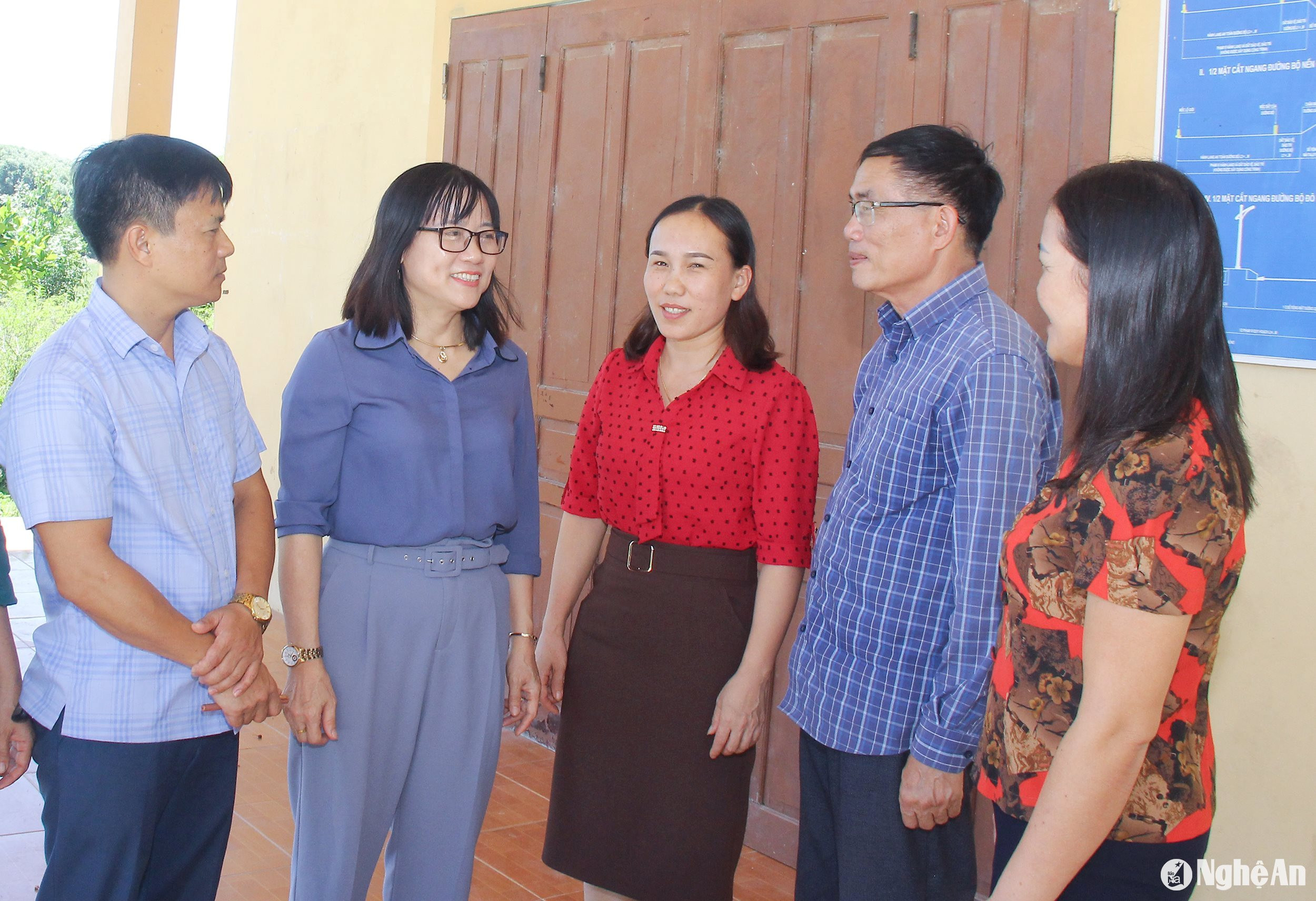
Resolute in difficult areas
In addition to development in traditional areas including rural areas, administrative agencies, and public service units, over the years, Nghe An Provincial Party Committee and Party committees at all levels have determined to remove "bottlenecks" and develop the Party in difficult areas.
The Standing Committee of Nghe An Provincial Party Committee issued Project No. 01 and Conclusion No. 95 on continuing to implement the Project on building Party cells and developing Party members in blocks, hamlets, and villages that do not have Party cells or Party members, and blocks, hamlets, and villages that are at risk of no longer having Party cells. Accordingly, from the Provincial Party Committee to the subordinate Party Committees, all established steering committees; mobilizing the entire political system to participate.
As in Quynh Luu district, in addition to establishing a steering committee, a support team, and an inspection team, the Standing Committee of the District Party Committee also assigned responsibility for implementing the project to the district's grassroots working groups. Comrade Kieu Van Thanh - Head of the Organization Committee of Quynh Luu District Party Committee shared: By assigning specific responsibilities to each member of the steering committee and grassroots working group, including the members of the Standing Committee of the District Party Committee in charge of the area, the plan and solutions for each hamlet within the scope of the project were developed in detail, close to the situation of each village and hamlet. As a result, after 8 years of implementing Project No. 01, Quynh Luu district has 100% of hamlets with party cells, reducing 2 hamlets at risk of no longer having party cells; reducing 2 hamlets without party members on site.
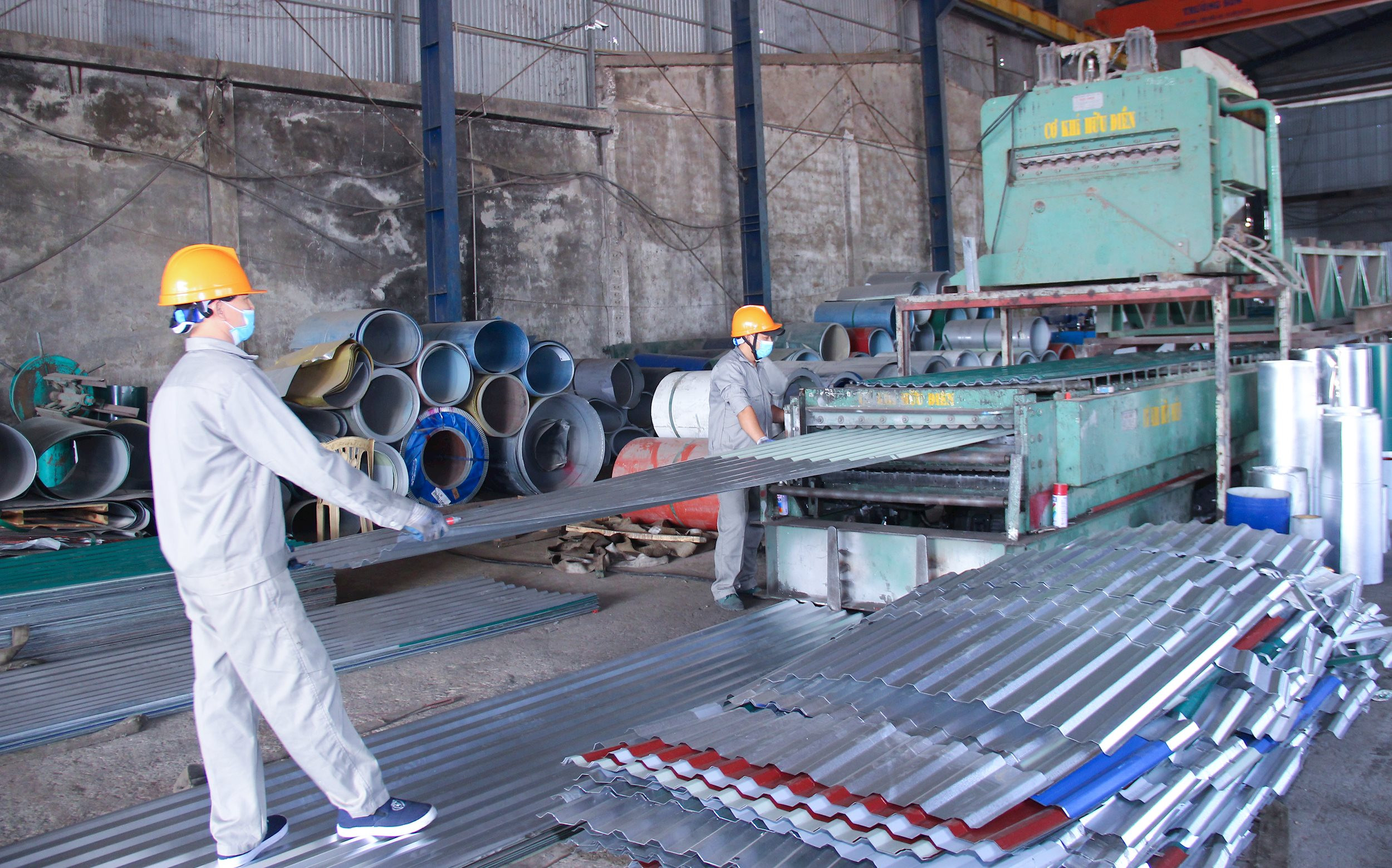
For Yen Thanh district, in addition to the responsibility of the steering committee, the Standing Committee of Yen Thanh District Party Committee assigned the responsibility to the District Party Committee's Propaganda Department to be responsible for propaganda; directing the Fatherland Front and mass organizations to develop plans to implement the project in their mass organizations at the grassroots level; directing the grassroots organizations within the scope of the project to develop detailed plans for each hamlet. In 2016, the whole district had 42 hamlets, belonging to 22 communes within the scope of the project. Currently, the district has only 20 hamlets, belonging to 13 communes within the scope of the project, of which 5 hamlets have increased 100% of party members; 9 hamlets have increased 1 part of party members and 6 hamlets are at risk of no longer having a party cell.
The work of developing party members and party organizations in private enterprises and foreign-invested enterprises has also been strengthened by the Provincial Party Committee and Party committees at all levels. In the first 6 months of 2024 alone, the whole province admitted 134 party members who are leaders, managers, workers and laborers in enterprises.
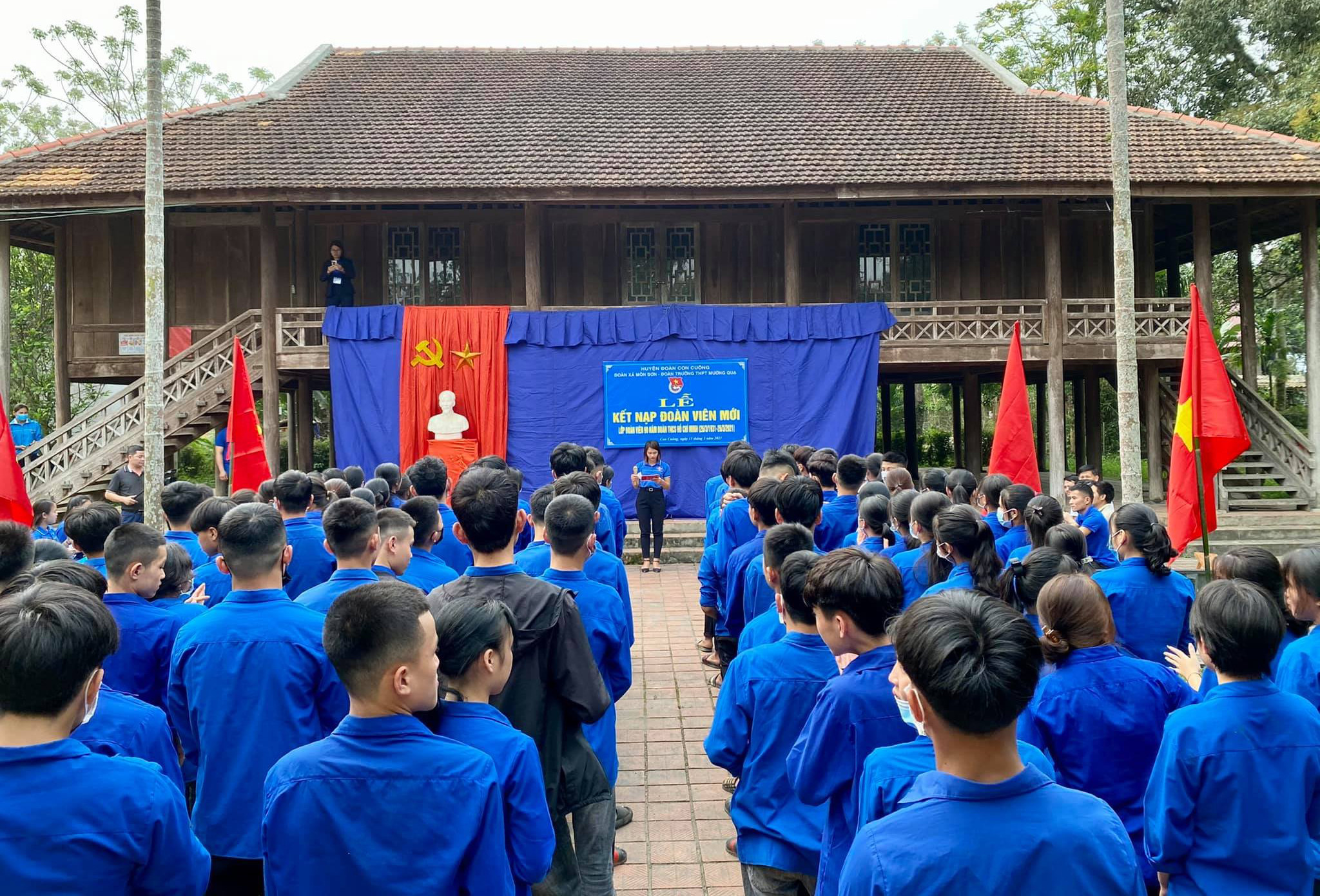
Nghe An also advocates promoting the development of party members in areas with large "room" for students in high schools, vocational schools and universities. Accordingly, the work of educating revolutionary ideals, ethics, lifestyle, including awareness and will to strive to become party members for union members and youth is associated with many activities and emulation movements in schools. This has had a positive impact on the results of party membership admission among students in high schools in an increasing direction. In the first 6 months of 2024 alone, the whole province admitted nearly 1,100 party members who are students.
With drastic solutions and directions, while promoting creativity and good practices in each Party organization; the work of developing Party members in many Party organizations has had positive changes, contributing to the overall results of the province. In the first 6 months of 2024, the whole province admitted 2,752 Party members, 421 higher than the same period in 2023.
The Resolution of the 19th Provincial Party Congress, term 2020 - 2025, sets the annual target of admitting 4,500 - 5,000 party members. Resolution No. 21 of the Party Central Committee on Strengthening the consolidation and building of grassroots party organizations and improving the quality of party members in the new period requires the rate of party members admitted each year in the period of 2020 - 2025 to reach 3 - 4% of the total number of party members, the whole province must admit more than 6,000 party members. This is posing many difficulties that require efforts from party committees and unions at all levels. Therefore, the work of developing party members continues to receive many specific solutions from party organizations, associated with innovation in methods and ways of leading and directing the work of developing party members.

